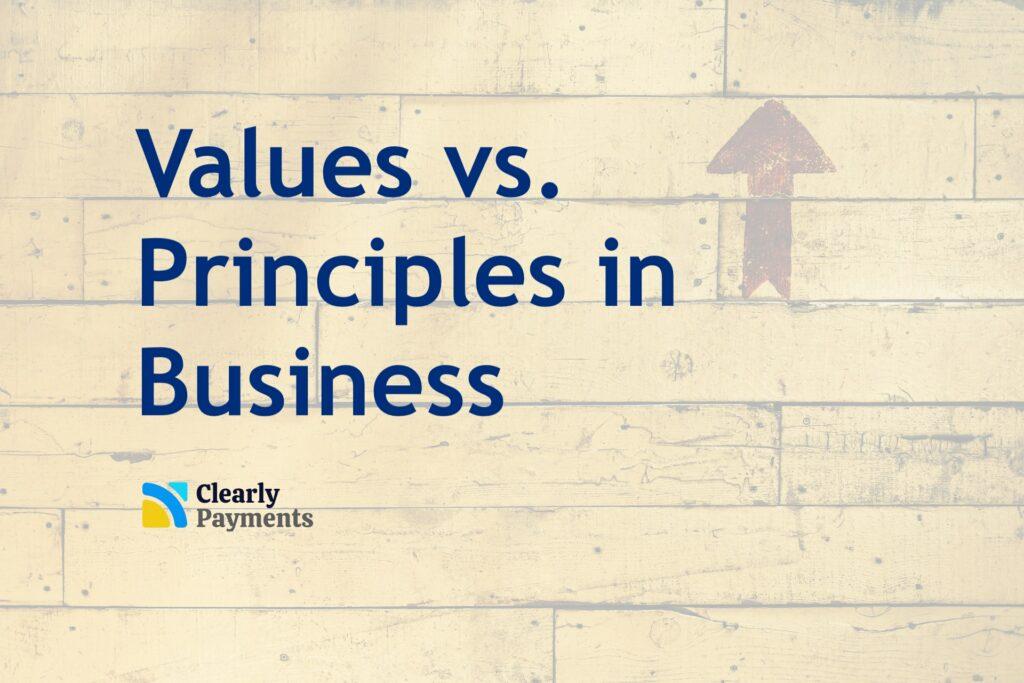Values = qualities. Principles = rules.
What are values?
Values are the foundation. They are the set of qualities you strive for. Values are used to make decisions about right and wrong. Example values companies may have are integrity, fairness, and respect. Values are the beliefs that are most important to us and form the foundation of our moral and ethical code. They are our personal convictions and define what we consider right and wrong. For example, honesty, respect, equality, and compassion are common values. Values help us make decisions in line with our beliefs and guide our actions in day-to-day life. Values are used to help you form your principles.
What are principles?
Principles are the rules or beliefs that govern your behaviour. Principles are built upon your values. A principle is the behaviour, response, or action in which you fulfill values. For example, if a value you have is honesty, a principle may be to never tell lies. Principles are specific to a particular field or discipline and provide a framework for how to act in certain situations.
Values and principles are both essential
How values and principles are used in business
Values and principles play a critical role in shaping the culture and decision-making of a business. They serve as a guide for employees to understand what is expected of them and how they should behave.
You can read The TCM principles and values and this will give you a picture of how we operate. We use them to help us operate the company, particularly when there are tough decisions. Here are some ways in which values and principles can be used in business.
-
Define the company’s culture: A business’s values and principles reflect the company’s culture. This aligns all employees and stakeholders on what is important to the company.
-
Drive decision-making: Values and principles are used to make important business decisions. These principles help ensure that the company’s actions align with its values. Values and principles are particularly helpful with difficult decisions.
-
Attract and retain the right talent: Companies that have a strong set of values and principles are often more attractive to potential employees. Employees are more likely to stay with a company that shares their values and principles which also helps with retention.
-
Foster trust with stakeholders: A business that operates with a clear set of values and principles can build trust with customers, investors, and other stakeholders. This trust is critical for building a strong reputation and establishing long-term relationships.
-
Enhance brand image: Values and principles can be used to enhance a company’s brand image.




